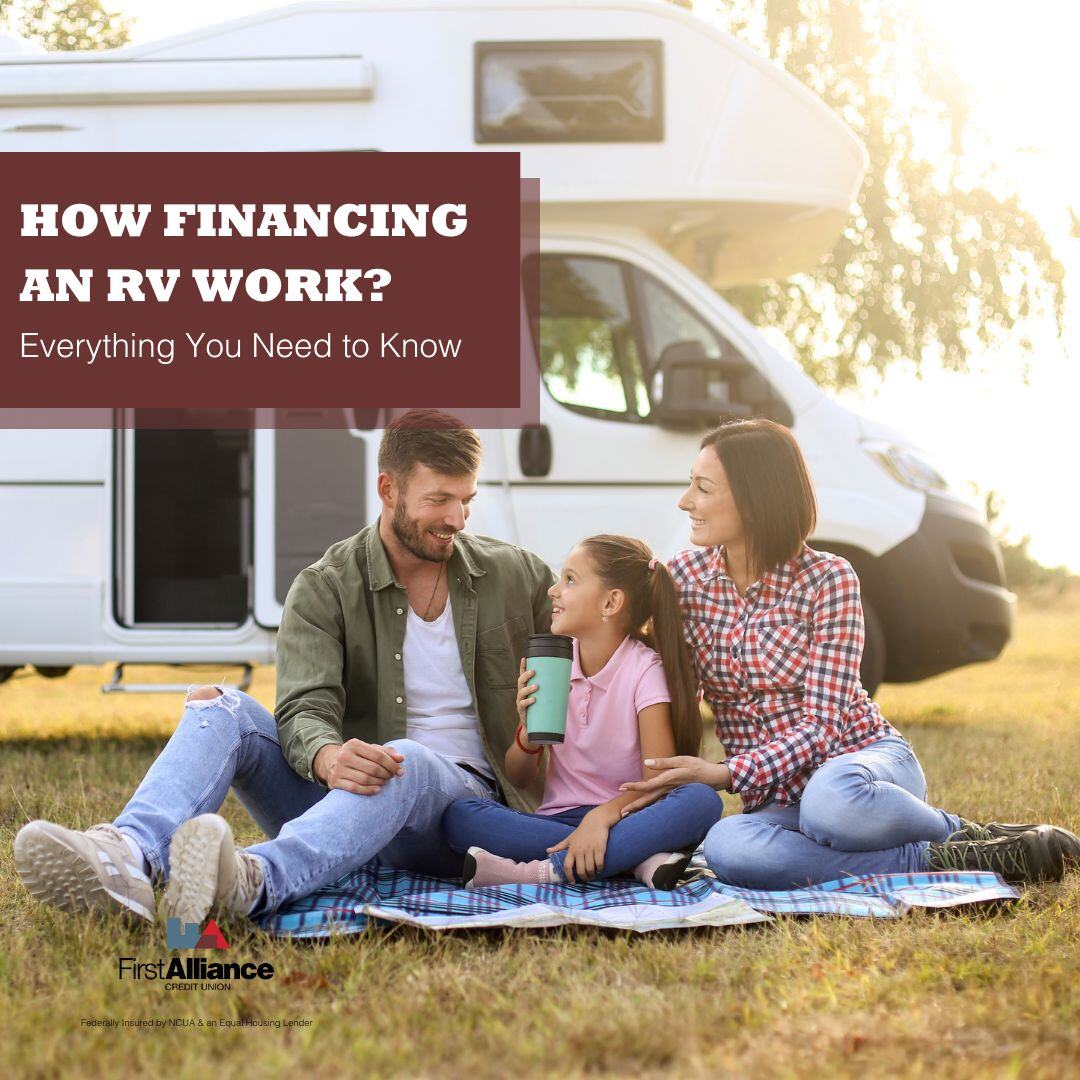What Can I Use a Personal Loan For? A Guide for Financial Newbies
The big question is: How can a personal loan help me? Lets give an example, meet Sam, 24, just landed a full-time job after years of working...
3 min read
 Kamel LoveJoy
:
Jul 30, 2024 5:30:00 AM
Kamel LoveJoy
:
Jul 30, 2024 5:30:00 AM

Financing a recreational vehicle (RV) is a smart way to enjoy the freedom of the open road without a hefty upfront cost. Whether you’re dreaming of a small camper or a luxurious motorhome, understanding RV financing is key. This guide will help young adults with modest incomes navigate the process of financing an RV.
RV loans are different from standard auto loans due to the higher costs and complexities involved. RV loans are often more like home mortgages, with amounts ranging from $25,000 to over $300,000 and terms spanning from a few years to up to 20 years, depending on the loan size.

Credit Score
Your credit score significantly affects your eligibility and the interest rates you'll receive. Generally, lenders prefer a FICO score of at least 670, though some may consider scores as low as 600. For the best RV loan rates, aim for a score in the mid-700s or higher. Check your credit reports from Experian, Equifax, and TransUnion to identify and address any issues before applying.
Income and Debt-to-Income Ratio (DTI)
Lenders will require proof of income to ensure you can handle the monthly payments. They will also assess your DTI ratio, which should ideally be under 36% even after adding the RV loan. A lower DTI indicates a better capacity to manage additional debt.
Cost and Down Payment
RVs vary widely in price. A pop-up camper might cost around $5,000, while a high-end motorhome can exceed $1 million. New RVs depreciate quickly, much like new cars, whereas used RVs are more affordable but may lack modern amenities. Expect to make a down payment of 10% to 20%, which can reduce your loan amount and interest rate.
Credit History
Lenders will review your credit history for on-time payments on existing debts. A strong payment history increases your chances of approval and favorable terms.
Secured vs. Unsecured Loans
RV loans can be secured (using the RV as collateral) or unsecured (based solely on your creditworthiness). Secured loans generally offer lower interest rates but risk repossession if you default. Unsecured loans might be an option for smaller RVs and typically come with higher interest rates.
Loan Terms and Interest Rates
RV Loan terms and interest rates vary by lender and depend on the RV’s type and cost, as well as your credit profile. Fixed interest rates are common, providing consistent monthly payments. Terms can range from 2 to 20 years, with longer terms resulting in more interest paid over time.

Determine Your Budget: Assess your finances and set a realistic budget, accounting for purchase price, insurance, maintenance, and operating costs. Use an RV loan calculator to estimate monthly payments based on different loan amounts and terms.
Check Your Credit Score: Ensure your credit is in good shape before applying. Aim to improve your score if necessary by paying down debts and correcting any errors on your credit report.
Save for a Down Payment: A larger down payment can lower your monthly payments and interest rate, and improve your chances of loan approval, especially with less-than-perfect credit.
Shop for Lenders: Compare loan offers from various sources, including banks, credit unions, and online lenders. Preapproval can streamline your RV shopping by setting a clear budget.
Negotiate for the Best Terms: Don’t hesitate to negotiate the purchase price and loan terms. Dealerships often expect some haggling and might offer additional incentives like maintenance packages or upgrades.
At First Alliance Credit Union, we offer competitive RV financing options tailored to meet your needs. Our down-to-earth, friendly approach ensures you get honest, respectful, and caring service every step of the way. Whether you're buying your first RV or upgrading to a larger model, we're here to help you achieve your travel dreams without breaking the bank.
Financing an RV is a significant investment, but with careful planning and the right lender, it can be a smooth and rewarding process. By understanding your financing options, improving your credit score, and choosing a reliable lender like First Alliance Credit Union, you can hit the road with confidence and peace of mind. If you’re ready to explore RV financing options, contact First Alliance Credit Union today. Our knowledgeable team is here to help you every step of the way. Happy travels!

The big question is: How can a personal loan help me? Lets give an example, meet Sam, 24, just landed a full-time job after years of working...

Lisa spent childhood hearing Grandma warn, “Banks chew money like a dog on a shoe,” so she trusted cash-in-the-mattress more than plastic. Ben—her...

Ever feel like you're walking through life like a ghost when it comes to your credit? You’re not alone! Many people live with what we call "ghost...